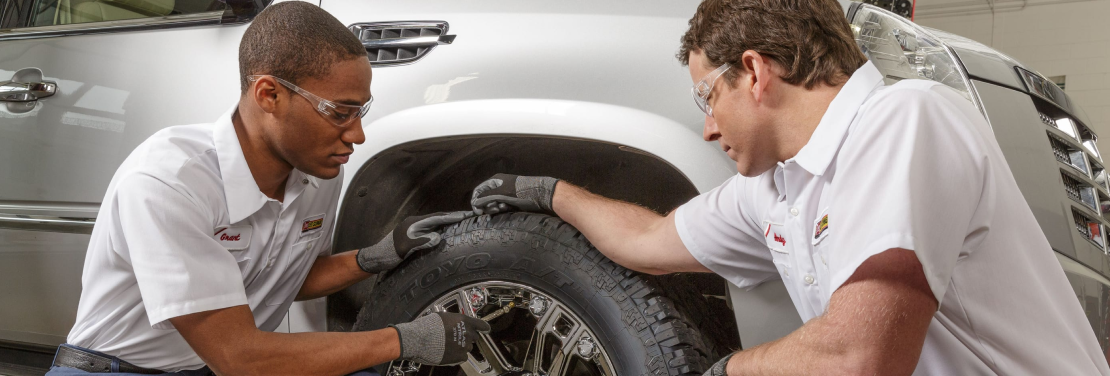Morris Tire and Alignment: Your Trusted Source for Reliable Service
Morris Tire and Alignment: Your Trusted Source for Reliable Service
Blog Article
Tire Solution: Understanding Tire Stress Surveillance Systems
Recognizing Tire Pressure Surveillance Solutions (TPMS) is a crucial element of keeping optimal automobile efficiency and safety on the roadway. With advancements in automobile modern technology, TPMS has actually ended up being a standard function in contemporary lorries, providing real-time information on tire stress degrees.

Value of TPMS
The significance of Tire Pressure Tracking Equipments (TPMS) depends on their ability to boost lorry safety and performance through real-time tracking of tire stress levels. Keeping the correct tire pressure is important for ensuring optimal handling, braking, and general security of an automobile. TPMS gives drivers with immediate feedback on any type of overinflated or underinflated tires, permitting for prompt changes to be made.
Elements of TPMS
Comprising numerous crucial aspects, a Tire Pressure Surveillance System (TPMS) functions as an innovative security function in modern vehicles. The major components of a TPMS consist of sensing units, a control component, and a warning sign. Sensors are typically located in the tire valve stem or affixed to the wheel assembly, where they gauge tire pressure and send data to the control module. If it discovers substantially low stress in any of the tires, the control component processes this info and triggers a warning. The caution indicator, typically an icon on the dashboard, informs the motorist to inspect the damaged tire or tires. Some progressed TPMS models likewise present the actual tire stress analyses for each tire, offering motorists with real-time details to ensure ideal tire efficiency and safety and security. By keeping track of tire pressure continually, TPMS helps prevent crashes, lowers tire wear, and improves fuel effectiveness, making it a critical component for car security and efficiency.
Sorts Of TPMS

On the other hand, indirect TPMS relies upon the vehicle's wheel speed sensing units to keep an eye on tire pressure. This system detects underinflation by contrasting the rotational rates of the wheels. Indirect TPMS is less pricey than direct TPMS, as it makes use of existing sensors within the lorry.
While direct TPMS uses more precise readings, indirect TPMS is easier in layout and usually calls for less upkeep. Both systems have their advantages and constraints, and the choice between them commonly relies on aspects such as cost, lorry make, and personal choice. Understanding the distinctions in between these two kinds of TPMS can assist lorry owners make educated choices concerning tire maintenance and security.
TPMS Upkeep Tips
Efficient maintenance of TPMS is important for making certain optimum performance and safety of your car. Frequently evaluating the TPMS sensing units for any kind of damage or deterioration is crucial. Guarantee that the sensors are cost-free and clean from debris that could interfere with their functioning. Additionally, it is recommended to inspect the sensing unit batteries occasionally and change them next as required to ensure precise analyses. Conduct regular look at the tire pressure levels and compare them with the TPMS readings to ensure they are constant. Rectify the system adhering to the supplier's standards if there are any type of inconsistencies. Additionally, throughout tire rotation or replacement, make certain that the TPMS parts are managed very carefully to stop any kind of prospective damage. Last but not least, if the TPMS alerting light illuminates on the control panel, attend to the issue without delay by examining the tire pressures and the overall system for any mistakes. By adhering to these upkeep tips, you can lengthen the life expectancy of your TPMS and improve the safety of your driving experience.
Benefits of Appropriate Tire Stress
Maintaining proper tire pressure, as highlighted in TPMS Upkeep Tips, is important for gaining the numerous benefits linked with optimal tire pressure degrees. Among the key benefits of keeping the proper tire pressure is enhanced gas performance. When tires are properly blown up, there is less rolling resistance, causing far better gas economy. Furthermore, correct tire stress ensures even tire wear, prolonging the learn this here now life expectancy of the tires and advertising more secure driving conditions. With the ideal tire stress, lorries additionally have better handling and traction, specifically in damaging weather problems. This can boost general driving efficiency and safety and security for the driver and passengers. Additionally, maintaining optimal tire pressure can contribute to a smoother and more comfortable ride by reducing resonances and noise caused by underinflated tires. Finally, the benefits of appropriate tire stress go beyond just tire long life; they incorporate enhanced gas effectiveness, improved safety, better lorry efficiency, and overall driving convenience.
Final Thought
Finally, understanding tire stress monitoring systems (TPMS) is critical for preserving optimum tire pressure and making certain car safety and security. By recognizing the relevance of TPMS, recognizing with its parts, knowing the various kinds offered, sticking to proper upkeep suggestions, and realizing the benefits of keeping proper tire pressure, motorists can improve their driving experience and lengthen the lifespan of their tires. Proper tire stress is vital to secure and efficient lorry operation.

Report this page